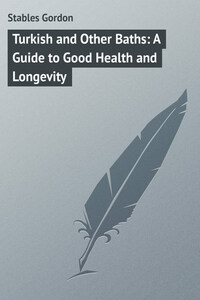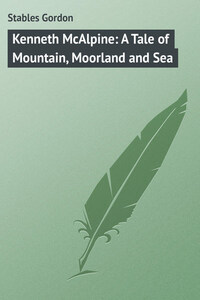Chapter One.
The Skin – Its Uses and Great Importance in the Animal Economy
Apart from any consideration of the bath as a remedial measure, in cases of disease, its importance as an agent for preserving the health, and granting to those who use it judiciously a reasonable hope of long life, cannot easily be over-estimated. But in order to understand properly the beneficial action of baths on the system, we must have some little knowledge of the physiology of the skin. Without such knowledge, all arguments that we could adduce in favour of the constant use of the bath in some shape or form, would be of the post hoc propter hoc kind, and therefore of little value.
What, then, we may ask, are the uses of the skin, for what ends has Nature designed it, and what is its modus operandi? Briefly stated, the uses of the skin are as follows: – Firstly, it covers and protects from violence the surface of the whole body, and the various tender and sensitive parts that lie immediately beneath it; secondly, it is the organ of touch; thirdly, it is the great regulator of the heat of the body; fourthly, it performs the duties of a great emunctory, and by means of its millions of sudoriferous, or sweat glands, each with its efferent duct; it carries off and out of the body a vast quantity of effete matter, which, if retained in the blood, would poison it, and therefore unfit it for the healthful performance of its functions; fifthly, the skin acts as an absorbent; and, sixthly, it is to some extent an organ of respiration.
The use of the skin as a protective covering to the body is apparent to every one, and we cannot help admiring its great and perfect adaptability for the purpose. On the soles of the feet, and palms of the hands, it is thicker than in other places, being thereon subjected to more wear and tear; on the trunk of the body, and on the arms it is soft and smooth, and it is everywhere wonderfully elastic and pliable. Moreover, it is lined throughout with a base work of fat, which gives extra support and security to the muscles, and, wherever in the body protection from the results of pressure is needed, we find that this fat is deposited in actual cushions, as under the heels, under the balls of the toes, on the hips, etc.
And here we may remark that, whenever the elasticity of the skin is impaired, as it is in the bodies of those who do not accustom themselves to the bath and perfect ablution, loathsome diseases are apt to be the result, which not only interfere with the actions of the skin itself, but lower the vitality of the whole system.
The use of the skin as an organ of touch is equally apparent. Being supplied with a most intricate network of blood vessels and nerves, the skin is all over a most sensitive organ, and thus serves to warn us in time of the approach of anything likely to be detrimental to our health. If we sit in a draught, the skin of the body chills almost at once; it begins to creep, as it were, warning us that it is time to move, time to seek shelter, or protect ourselves by an extra garment. Some portions of the skin are far more sensitive than others; that of the eyelids, for instance, which is agitated by the slightest breath of air, or by a touch communicated to it by the least pressure on the eyelashes.
By means of, or through, the medium of its vast number of sweat glands, the skin regulates the amount of heat in our bodies. This is a function which is much more important than most people might at first imagine. The temperature of the body in health is about 99 degrees Fahrenheit, if it rises much above this – even a few degrees, indeed – or if it falls much below it, severe illness is indicated, danger is apparent, danger even to life itself. An equable temperature of the body it is therefore evident is alone compatible with perfect health, but if it were not for the perspiratory system, when any extra strain is put upon the body, as by hard work, or hard exercise, heat would accumulate in the system, and the temperature of the body would be raised, to our discomfort, detriment, and danger. But the pores of the skin are our safety valves; from exertion the blood is determined to the surface, the sweat glands are thus excited to increased action, and perspiration is thrown off in abundance, which, passing off in steam, carries with it – in obedience to a law too well known to need explanation – all the extra caloric. In hot weather, a great deal of heat is thus expended through the skin; in cold weather the kidneys are more active, and they excrete the water which otherwise would have passed through the pores, and by storing it for a time in a reservoir designed for the purpose, conserve the heat of the system, and prevent lowering of the animal temperature.














